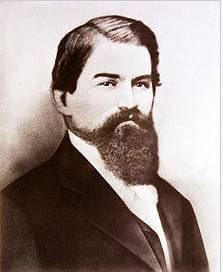International Virtual Assistants Day 2016
 Today is 2016’s International Virtual Assistants Day (IVAD), which honors the support staff who will never hit on a coworker, pass gas in the conference room or steal someone else’s yogurt from the company fridge. It takes place on the third Friday of May, during the Online International Virtual Assistants Convention (OIVAC).
Today is 2016’s International Virtual Assistants Day (IVAD), which honors the support staff who will never hit on a coworker, pass gas in the conference room or steal someone else’s yogurt from the company fridge. It takes place on the third Friday of May, during the Online International Virtual Assistants Convention (OIVAC).
On OIVAC’s home page, the header indicates the convention runs from May 19-21, 2016, but the text refers to the “upcoming” IVAD celebration on May 17, 2013. The latest blog post is from 2012. The names of past winners of the Thomas Leonard Virtual Assistant of Distinction Award and the Janet Jordan Achievement Award are listed from 2006-2012, which would make this its 11th year.
To learn more, we signed up for OIVAC 2016’s free informational seminar. When we received the confirmation email, we clicked on the link, which took us back to the signup page. (We don’t care to admit how many times we repeated the action to make sure it wasn’t our fault. It wasn’t.)
This shook our confidence in the “IVAD Creed: Dedication, Experience, Expertise and Determination to Succeed of professionals providing administrative and other business support services, virtually (DEEDS), exemplifies our integrity and commitment to provide superior service.”
Everyone makes mistakes, but when you know you’ll dedicate one day each year to attracting positive attention to your profession, why not avail yourself of a quick copy edit in advance? Maybe the site’s proofreaders are truly virtual; we’ve only assumed they exist in real life.
In a last ditch effort for answers, we decided to visit the A*************, listed on the OIVAC site and identified on some sites as a sponsor of the convention and holiday. We are not going to name the organization here because when we clicked on the calendar dropdown, it resulted in a malicious website script redirect attack that Norton Antivirus deemed “High Risk.” Although we’ve never met, Norton has never let us down.
We’ll just have to trust that International Virtual Assistant Day is really happening today at the Online International Virtual Assistants Convention. Perhaps that is exactly as it should be.
![]()

 Today is National Blame Someone Else Day, celebrated on the first Friday the 13th of the year. According to almost every source we checked, the holiday was invented by Anne Moeller of Clio, Michigan in 1982.
Today is National Blame Someone Else Day, celebrated on the first Friday the 13th of the year. According to almost every source we checked, the holiday was invented by Anne Moeller of Clio, Michigan in 1982.
